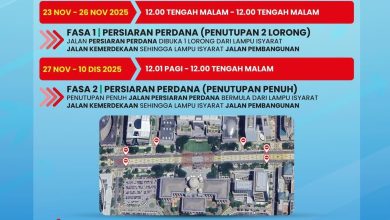Harley-Davidson and MotoGP™ Join Forces to Launch High-Speed Bagger Racing Series in 2026

Iconic American motorcycles meet the world’s premier racing stage in a bold new global championship.
MALAYSIA – May 14, 2025 — In a move that’s set to shake up the global motorcycle racing scene, Harley-Davidson and MotoGP™ have announced the launch of a brand-new international racing series featuring Harley’s high-powered bagger motorcycles. The series is scheduled to make its debut in 2026, bringing an unmistakably American roar to the world’s most prestigious motorcycle racing events.
The new championship will take place across six MotoGP weekends in Europe and North America, with 12 total races—two at each event. But this won’t be your average track battle. Picture thunderous, race-tuned Harley-Davidson Road Glide motorcycles, each pushing over 200 horsepower and blasting past at speeds exceeding 300 km/h (186 mph). It’s raw, it’s bold, and it’s unlike anything MotoGP fans have seen before.
Each team will ride identical race-prepared bikes—developed by Harley-Davidson Factory Racing—to ensure tight competition and thrilling action. The grid is expected to include 6–8 teams, each fielding two riders.
“This is a bold new step for Harley-Davidson’s global racing ambitions,” said Jochen Zeitz, Chairman, President and CEO of Harley-Davidson. “We’ve seen the passion that performance ignites in our riders and fans—from our King of the Baggers victories to the cutting-edge CVO RR and Road Glide ST models. Now, we’re taking that passion to a global stage in partnership with MotoGP.”
And for MotoGP, the collaboration represents more than just a new racing category—it’s a chance to expand its appeal and bring a fresh flavor to the paddock.
“This partnership with Harley-Davidson is a thrilling opportunity,” said Carmelo Ezpeleta, CEO of Dorna Sports, the rights holder of MotoGP. “They bring a unique style, performance heritage, and cultural legacy that adds a bold new dimension to our Grand Prix weekends. Fans are in for a spectacle.”
Bagger Racing: From Niche to Global Spotlight
While Harley-Davidson’s racing success in the MotoAmerica King of the Baggers series has already drawn attention, this new championship will elevate the format to a global audience. It’s a bold departure from the lightweight, high-revving prototypes that dominate MotoGP’s main grid—and that’s exactly the point.
With aggressive styling, throaty engines, and heavyweight power, the Harley Road Glide racers deliver an entirely different kind of spectacle. Think brute force meets technical precision.
What’s Next?
The full calendar, broadcast details, and team lineup will be revealed in the coming months. Harley-Davidson has opened inquiries for potential teams, sponsors, and media partners. Interested parties can contact: factoryracing@harley-davidson.com.
Until then, one thing is certain: MotoGP weekends are about to get a whole lot louder.
Follow the Action
Stay connected with Harley-Davidson in Asia Emerging Markets:
🌐 harley-davidson.com
📱 Facebook: @HarleyDavidsonAsia
📸 Instagram: @HarleyDavidson_Asia
🎥 YouTube: Harley-Davidson Asia
🎵 TikTok: @HarleyDavidson_Asia
About Harley-Davidson
Harley-Davidson, Inc. is the parent company of Harley-Davidson Motor Company and Harley-Davidson Financial Services. Founded in 1903, Harley-Davidson has defined and evolved motorcycle culture for over a century with its unmistakable designs, customizable rides, and relentless pursuit of performance and freedom. The company also holds a controlling stake in LiveWire, the first publicly traded electric motorcycle company in the U.S.
About MotoGP
MotoGP is the pinnacle of two-wheeled motorsport, home to the fastest riders and most advanced motorcycles on Earth. With a global fanbase and a history of pushing boundaries, MotoGP is a true celebration of speed, courage, and cutting-edge technology.
MotoGP: Faster. Forward. Fearless.





